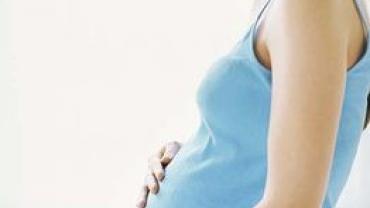
It's certainly no surprise that nutritional needs during pregnancy increase dramatically as the process of incubating a fetus requires additional micro and macro nutrients. While a chronically poor diet can have long term ramifications while not pregnant think obesity diabetes metabolic syndrome for the developing child however a pregnant mom's inadequate nutritional intake can undermine the immediate health of both mom and child while also impacting the birthing process itself.
For example while most clinicians understand the importance of vitamin D in overall human health what may possibly get overlooked are the health benefits of the sun. Specifically and most importantly the sun and its life-giving ultra violet radiation is vital in order for our bodies to endogenously produce vitamin D. This may be reflected by an increased risk of developing multiple sclerosis in the offspring of mothers who were exposed to minimal amounts of sunlight during pregnancy.
Additionally low vitamin D status can lead to increased risks of asthma and allergic rhinitis later in life as well as impaired growth and skeletal problems.
Finally according to another study vitamin D deficiency correlates with preeclampsia gestational diabetes mellitus and bacterial vaginosis and an increased risk for C-section delivery.
While there is little consensus on optimal vitamin D levels for most individuals let alone mothers during pregnancy one study found that supplementing pregnant women with 4000 IU of vitamin D daily from the 12th-16th week of pregnancy to delivery was safe and generally effective in reaching the study's clinical goal of 80nmol/L.
Omega-3 fatty acids are another fundamentally vital part of any complete nutritional pregnancy regimen. The omega-3 fatty acid docosahexaenoic acid (DHA) is critical for optimal brain health and function at all ages of life but the research literature is very clear that DHA provides brain-supportive benefits in infants as well as the developing fetus. DHA helps with brain development while supporting learning memory visual acuity and cognition. DHA has even been shown to have an interesting and complex relationship with neurotransmitters as it can help mitigate the symptoms of postpartum depression by influencing both serotonergic and dopaminergic neurotransmission.
Iron zinc and folate are all required for proper neonatal intellectual and motor skill development. Because of the rapid growth rate and neurological expansion of the fetus and neonate requirements for these important nutrients are exceptionally high. Since ideally the primary nutritional vehicle for the newborn is breast milk and since many moms find that getting enough iron and zinc in their diet may be difficult (red meat can be the best source of both zinc and iron) supplementation may be warranted.
Another nutrient associate with proper neurological motor metal and psychological development in the neonate is the mineral iodine. The correlation between maternal hypothyroidism and adversely affected fetal development is unquestioned.
Ensuring that pregnant moms pay special attention to appropriate nutrition can be as simple as putting her on a properly formulated prenatal multivitamin. In this simple way both baby and mom can be assured that their fundamental nutritional needs are being met during this time.
Michael Fuhrman D.C.